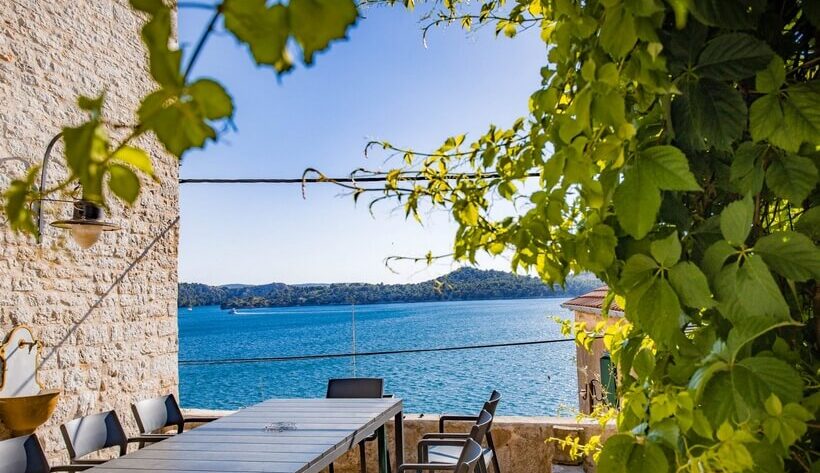When considering relocation, the question “ Is Croatia a good place to live? ” frequently arises. For those seeking a blend of natural beauty, rich history, and modern amenities, Croatia stands out as an exceptional choice. This stunning country, with its picturesque coastline, Mediterranean climate, and vibrant culture, offers a remarkable quality of life. In this blog, we’ll delve into the various aspects that make Croatia an appealing destination, including its economic landscape, real estate market, and the charm of regions like Dalmatia and the historic city of Dubrovnik.
Climate and Natural Beauty
Croatia enjoys a Mediterranean climate characterized by warm summers and mild winters, making it an inviting place to live year-round. The country’s coastline along the Adriatic Sea boasts crystal-clear waters and beautiful beaches, perfect for those who love the sea and sun. Beyond the coast, Croatia’s diverse natural landscapes include mountains, lakes, and national parks, offering endless opportunities for outdoor activities and adventures. Whether you are hiking in the Dinaric Alps or exploring the Plitvice Lakes, nature lovers will find Croatia a paradise.
Healthcare System
Croatia’s healthcare system is well-regarded, providing high-quality medical services through a network of well-equipped hospitals and clinics. While most healthcare facilities are concentrated in urban areas, quality care is accessible in smaller towns as well. The country offers public health insurance covering basic medical needs, complemented by private health insurance options that provide additional benefits and quicker access to specialists. Foreign residents can easily navigate the healthcare system, ensuring their medical needs are well taken care of.
Education System
The Croatian education system is robust, offering quality education through its network of primary and secondary schools, as well as numerous universities. Public schools are free and maintain high educational standards, while private and international schools are available in larger cities like Zagreb and Dubrovnik. For expatriates, international schools provide curricula in English, ensuring continuity in education for their children. This makes Croatia an excellent choice for families seeking a well-rounded educational environment.
Cost of Living
Compared to many Western European countries, the cost of living in Croatia is relatively affordable. Housing prices vary significantly by location, with higher costs in popular tourist destinations such as Dubrovnik and Split, and more affordable options in smaller towns and rural areas. Utilities, including electricity, water, and heating, are reasonably priced. Grocery shopping is economical, with local markets offering fresh, high-quality products. Public transportation is efficient and cost-effective, and leisure activities such as dining out, cinema, and cultural events are accessible and budget-friendly, enhancing the overall quality of life.
Job Opportunities
While finding a job as an expatriate can be challenging, opportunities do exist, particularly in the tourism, IT, healthcare, and construction sectors. Zagreb, the capital city, offers the most job prospects, while coastal cities provide seasonal employment in tourism and hospitality. Proficiency in the Croatian language and familiarity with local customs can significantly improve job prospects. However, the increasing presence of international companies in Croatia is gradually expanding employment opportunities for foreigners.
Taxation and Legal Considerations
The Croatian tax system includes various taxes such as income tax, value-added tax (VAT), and property tax. Income tax is progressive and depends on earnings levels, while the standard VAT rate is 25%. Legal procedures for relocating and residing in Croatia involve obtaining a residence permit, registering an address, and enrolling in the tax system. Expatriates should be aware of key legal aspects, including employment conditions, rental rights, and local laws. Engaging a local legal expert or migration consultant can facilitate the relocation process and ensure compliance with all legal requirements.
Real Estate Market in Croatia
The Croatian real estate market has seen significant growth in recent years, attracting both domestic and foreign investors. This stability is driven by increased demand for properties, particularly in tourist regions such as Dalmatia, Istria, and Dubrovnik. Zagreb also remains a popular investment destination, with a burgeoning market for residential and commercial properties. Property prices vary by location, with the highest prices in tourist hotspots and urban centers, while rural areas and smaller towns offer more affordable options.
Croatia offers a unique blend of natural beauty, rich culture, and modern amenities, making it an ideal place to live, work, and invest. Despite some challenges, the benefits of living in Croatia—affordable living, quality healthcare, excellent education, and vibrant culture—make it a compelling destination for those seeking a fulfilling lifestyle. Whether you are considering moving for work, retirement, or investment, Croatia presents numerous opportunities and a promising future.





